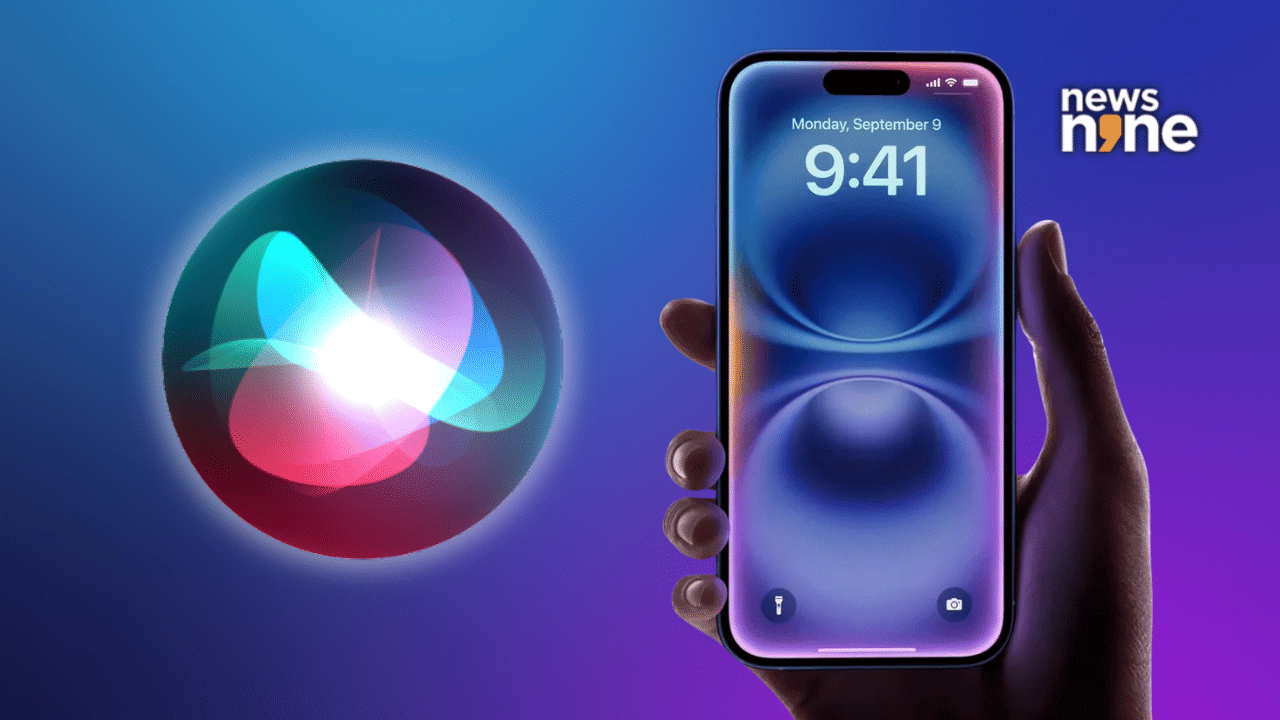New Delhi: Apple’s next big artificial intelligence update is taking an unexpected turn. The company is reportedly leaning on Google’s Gemini AI to power the upcoming version of Siri, expected to launch around March 2026, according to Bloomberg’s Power On newsletter by Mark Gurman.
The partnership, if confirmed, would mean Apple’s long-promised “Apple Intelligence” ecosystem, first unveiled in mid-2024, is now partly powered by one of its biggest rivals. Gurman wrote that Apple is paying Google to create a custom Gemini-based model that runs on Apple’s Private Cloud Compute servers, helping Siri handle smarter, AI-driven responses and web searches.
Siri’s AI revamp: Apple turns to Google Gemini
According to the report, the new Siri will “lean” on Gemini for an AI-powered web search feature and smarter query handling. This does not mean Siri will display Google branding or integrate Google services. Instead, Gemini will run quietly in the background, supporting Siri’s voice interactions through Apple’s own interface.
Gurman cautioned that “there’s no guarantee users will embrace it, that it will work seamlessly or that it can undo years of damage to the Siri brand.” The March 2026 rollout will also coincide with new hardware, including a smart home display with both speaker-base and wall-mount options, as well as updates to Apple TV and HomePod mini, which are expected to highlight Apple’s growing AI ecosystem.
A delayed dream for Apple Intelligence
Apple Intelligence, a suite of AI tools first shown at WWDC 2024, was meant to position the company as a major player in generative AI. It introduced ChatGPT integration inside Siri and promised AI-assisted writing, image creation, and system-wide intelligence across iPhones and Macs.
But progress has been slower than expected. Many of the features remain in beta, and the fully AI-powered Siri update has been pushed to 2026. Gurman noted that this delay, combined with Apple’s cautious AI rollout, has only widened the gap between Apple and its top tech rivals like Nvidia, Microsoft, and Google.
During the company’s recent earnings call, CEO Tim Cook said they are “making good progress” on the new Siri and added that Apple is “open to pursuing M&A if we think that it will advance our roadmap.”
Challenges in China and Apple’s global AI strategy
While Apple’s U.S. rollout continues, the launch of Apple Intelligence in China has hit regulatory roadblocks. Despite partnerships with local firms, including Alibaba and plans to integrate Baidu’s AI models, Apple is struggling with compliance and model performance issues.
A 2024 Reuters report highlighted that Baidu’s AI models had difficulty understanding user prompts and delivering accurate responses, slowing progress in localising Apple’s AI features. Gurman described the Chinese rollout as a “rolling target,” suggesting it may be delayed further into 2026.
Apple is also preparing to preview iOS 27, macOS 27, and watchOS 27 at its Worldwide Developers Conference in June 2026, where it will likely focus on expanding Apple Intelligence and refining Siri’s AI foundation.
